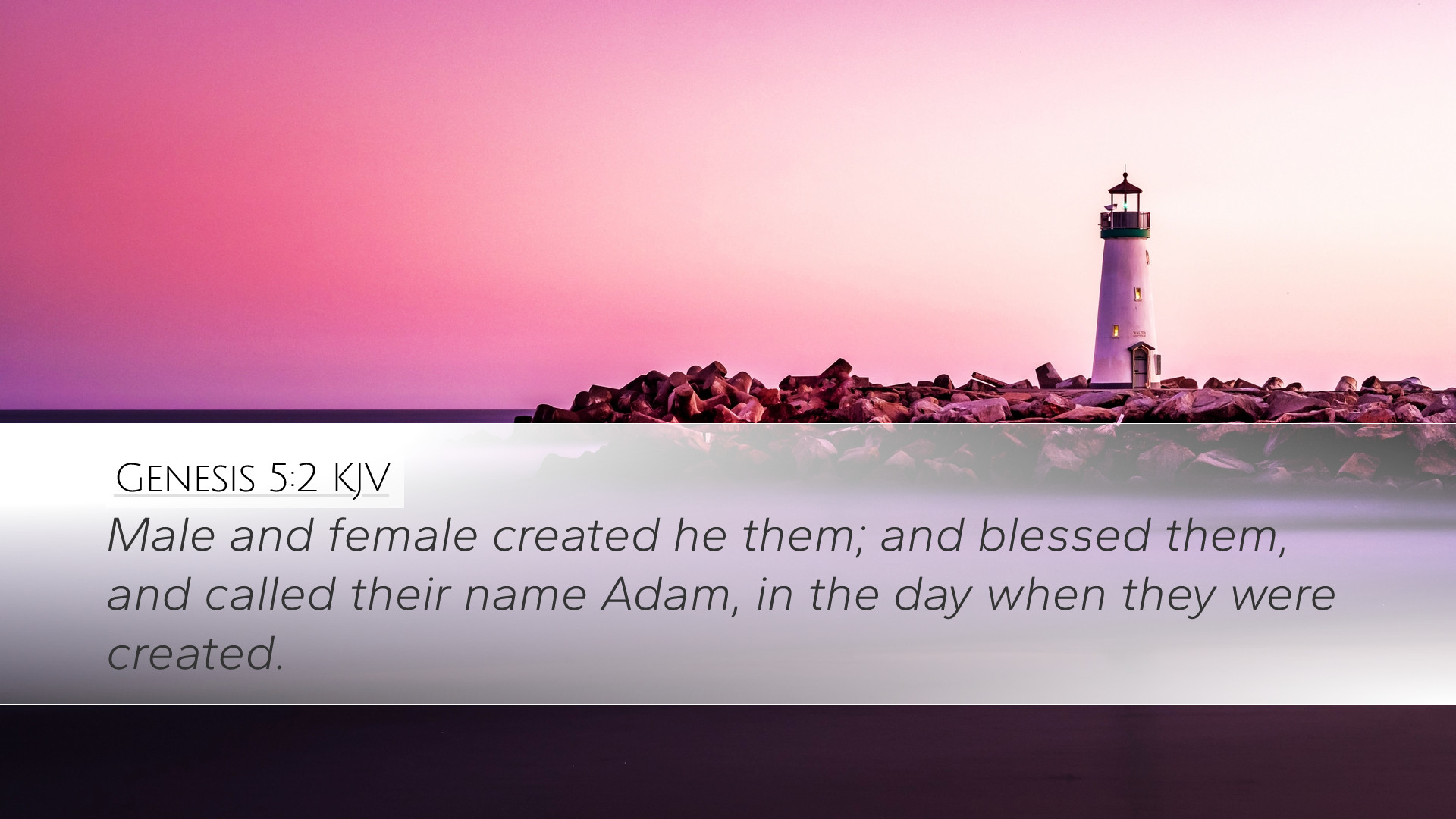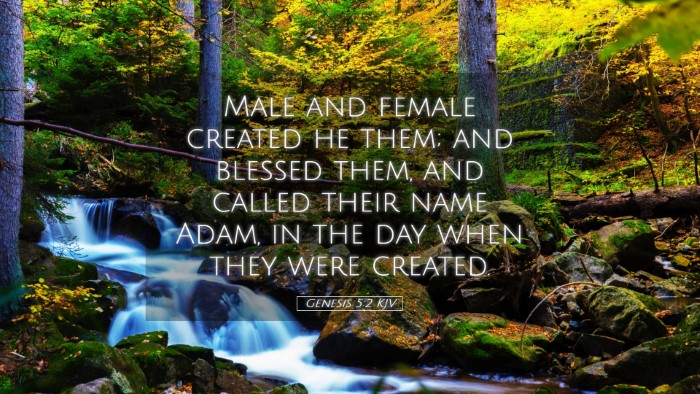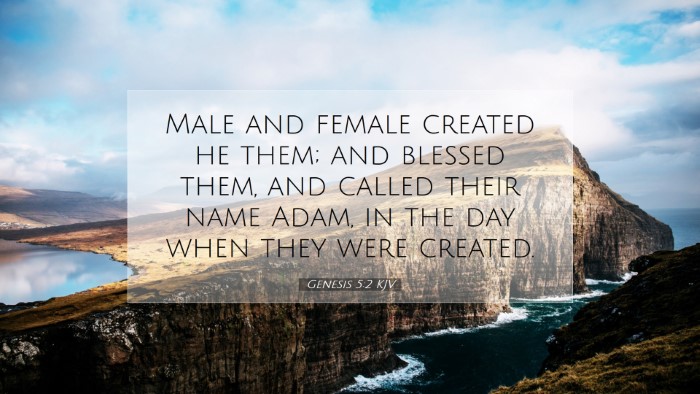Commentary on Genesis 5:2
Verse Text: "Male and female created he them; and blessed them, and called their name Adam, in the day when they were created."
Introduction
This passage from Genesis 5:2 encapsulates profound theological and anthropological truths regarding the creation of humanity. It underscores the divine intention in the creation of male and female, the blessing pronounced upon them, and the significance of their shared identity as “Adam.” Drawing on the insights of revered public domain commentators such as Matthew Henry, Albert Barnes, and Adam Clarke, we shall explore these themes in depth, highlighting their implications for pastoral ministry, theological discourse, and scholarly study.
The Act of Creation
Divine Design: The phrase "Male and female created he them" emphasizes the intentionality of God's creation. According to Matthew Henry, this reflects a divine design that establishes distinct roles and characteristics for men and women while affirming their equal value before God. Each gender possesses unique attributes that contribute to the fullness of humanity, echoing the theological position that diversity within unity is a key aspect of God's creative order.
The Meaning of ‘Adam’: The term “Adam” can be understood both as a specific individual and as a representation of humanity as a whole. Albert Barnes notes that the use of the name Adam to collectively refer to both male and female suggests a foundational unity in the human race. This can serve as a critical point for discussions on human dignity and the inherent worth of every individual, reflecting the imago Dei (image of God).
The Blessing of Creation
God’s Favor: The act of blessing is central to this verse. Adam Clarke observes that the blessing bestowed by God upon humanity implies an affirmation of their existence and purpose. This blessing not only signifies divine approval but also establishes a commission for humans to flourish in their relationships and environments. Scholars might explore how this original blessing can inform contemporary understanding of God’s ongoing purpose for human beings.
The Covenant of Multiplication: The blessing also carries with it the implication of multiplication and stewardship over creation. As Matthew Henry elaborates, God’s command that they “be fruitful and multiply” (Genesis 1:28) reflects the integral role of humanity in the divine plan for creation. It presents an invitation for believers today to engage in stewardship, community building, and responsible development of the earth.
Theological Implications
Human Relationships: The verse touches upon the essence of human relationships. Albert Barnes notes the partnership established between male and female, which is foundational for understanding marriage and familial structures. This foundational relationship is crucial for theological discussions on sexuality, family life, and societal norms that honor God’s design.
Unity and Diversity: In a contemporary context marked by divisions and gender conflicts, this verse offers a paradigm that upholds unity in diversity. Matthew Henry stresses the necessity of recognizing both the complementary and distinct attributes of each gender, which is essential for fostering mutual respect and understanding in both the ecclesial and societal environments.
Conclusion
Genesis 5:2 serves as a profound declaration of God's creative intent and the inherent worth of humanity. The insights from public domain commentaries enrich our understanding of this foundational text and its implications for various fields of biblical scholarship, pastoral work, and theological inquiry. Reflecting on the gender roles, the blessing of creation, and the unified identity of humanity can provide vital teaching points for the church today. As we engage with this text, may we be inspired to pursue a deeper relationship with God and one another, honoring the divine design that shapes our existence.


